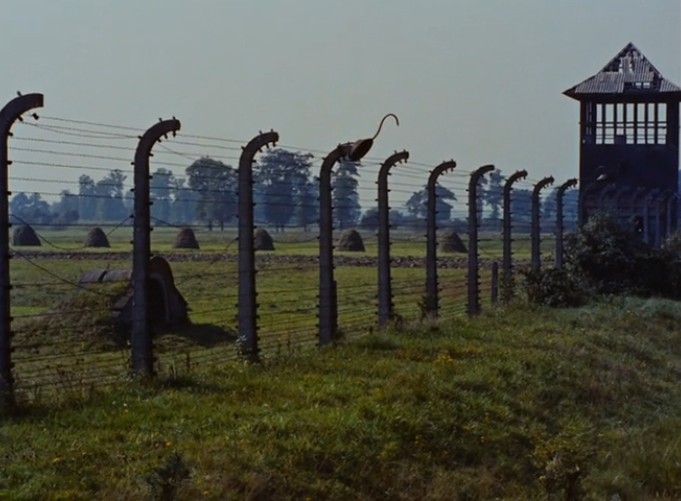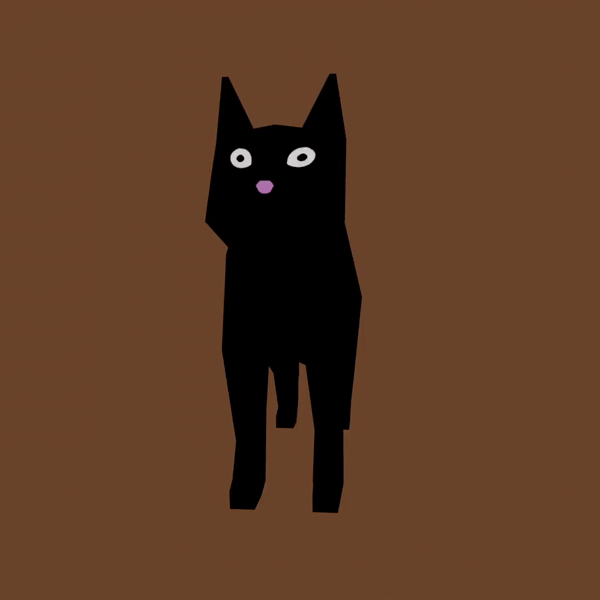The Act of Killing (2012), directed by Joshua Oppenheimer and Night and Fog (1956), directed by Alain Resnais, are foundationally different in the ways that they have to approach genocide. There’s an inherent difference that stems from the places and times they are portraying. The Act of Killing is about a group that was still in power in Indonesia, while Night and Fog is more of a retrospective on the Nazi regime. The differences in time and place are inherent in the two pieces, but there’s also variation in approach for each film.

Night and Fog — made in a post war France about the rise of the Nazi regime—immediately makes itself known as temporally discontinuous through the opening shots of a decommissioned concentration camp being immediately paired with shots of the Nazi marches. This film was made after the events, and there are no interviews done by the filmmaker with an individual from the events. Much of its credibility comes from archival footage of the camp during its active years, following the historical model of presentation. There’s also the addition of very poignant archival footage of bodies and hair that inflict heavy emotion through their graphic nature. All of this points not just to the historical model as backed by compelling emotional sequences, but the expository mode pointing us towards the mortifying horror of the event through. The point is pushed home by the way the narrator describes the events. There is mournful condemnation of the monster of war as we see the rubble of cruelty.
The Act of Killing is further after the genocide it speaks of, at least 50 years after. It partakes in the direct interview of a gangster, Anwar Congo, that took part in cleansing of supposed communists from Indonesia. We don’t see any sort of archival footage of the acts, but we are hearing the firsthand account of the perpetrator. Congo doesn’t think it wrong and practically jumps at the opportunity to recreate the act himself. Congo’s given the opportunity to make a film where he plays the victim and highlights how this was not some evil act but a favor to victims. The fact that the film almost exclusively follows one man through the opportunity to relay his experience through the medium of film places this documentary right into the performative mode. The fact that the man we follow isn’t just living his life, but retelling it places this film firmly into the biographical model. This film is not making a case for or against the leading character of Congo, but it allows the audience to follow the way he processes and perceives his past.
Within these two films there is a through line. They fall under the same general theme that morality is relative. This is found as a direct line in The Act of Killing and as an implication in Night and Fog through the moment between the narrator and the trial scenes—a repetition of “I am not responsible” followed by the single response of “Then who is responsible?” While they take on morality differently, both don’t condone genocide but host social actors that choose to justify their role within it.
Though both films hold a similar topic, they are vastly different in presentation. Both chose different modes, models, times, locations, and events to broach, emphasizing differing perspectives on genocide as a topic. They do, however, find similarity in their main topic and the issue of morality within it. This similarity leads them to having remarkably similar emotional impacts on the audience. The proof is in the firsthand accounts of events and the compelling emotions displayed by the social actors—things such as sincerity, mourning, or apathy—paired with the of the location where it happened and the proof that it happened there. There’s never approval of genocide by the end of each film, but there is always the looming horror the fact that it happened then and very easily will happen again and be justified. Both films know that morality is relative, and that war never changes.
